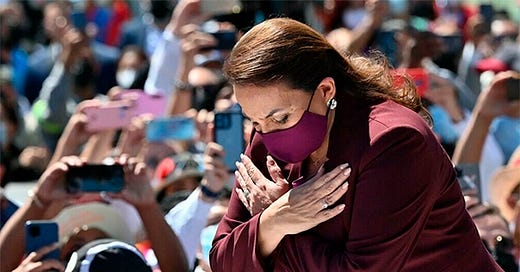Xiomara Castro assumes presidency in Honduras
An alliance of parties and movements seeks a socialist refoundation
Xiomara Castro assumes the presidency of Honduras with the political possibility of constructing her promised refoundation. The Party of Liberty and Refoundation (Libre) heads a coalition of alternative political parties and the radical sector of the traditional Liberal Party, which should enable legislative majorities, in spite of the manoeuvres of the rightist and corrupt National Party. The social movements support her presidency, hoping to pursue their autonomous agendas in a form integrated with the administration of the state. The social movements and the government share the goal of the recuperation of laws and regulations deconstructed by twelve years of military dictatorship.
The United States has maintained control over the economic policies of Honduras since the beginning of the twentieth century. However, the USA developed a softer version of imperialism in the post-World War II era. Having a…




